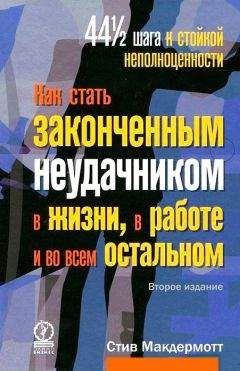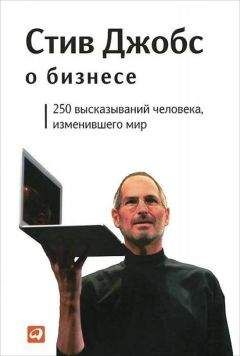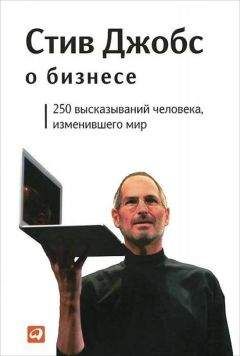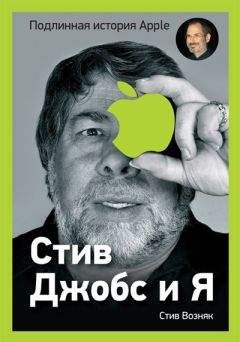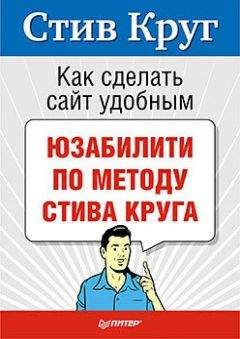Михаил Сарапов - Английский для смелых. Истории о духах и привидениях / Great Ghost Stories
Dr Teesdale remembered his own moment of terror this morning, but he spoke quite sincerely.
‘I am sure there is nothing to be afraid of,’ he said, reassuringly.
Dr Teesdale had a dinner engagement that night, which he broke, and was sitting alone in his study by half past nine. In the present state of human ignorance as to the law which governs the movements of spirits severed from the body, he could not tell the warder why it was that their visits are so often periodic, timed to punctuality according to our scheme of hours, but in scenes of tabulated instances of the appearance of revenants, especially if the soul was in sore need of help, as might be the case here, he found that they came at the same hour of day or night. As a rule, too, their power of making themselves seen or heard or felt grew greater for some little while after death, subsequently growing weaker as they became less earthbound, or often after that ceasing altogether, and he was prepared tonight for a less indistinct impression. The spirit apparently for the early hours of its disembodiment is weak, like a moth newly broken out from its chrysalis – and then suddenly the telephone bell rang, not so faintly as the night before, but still not with its ordinary imperative tone.
Dr Teesdale instantly got up, put the receiver to his ear (доктор Тисдейл немедленно встал и приложил трубку к уху; receiver – получатель; телефонная трубка; to receive – получать). And what he heard was heart-broken sobbing (то, что он услышал, было душераздирающим рыданием; heart-broken – убитый горем; с разбитым сердцем; to sob – рыдать; всхлипывать), strong spasms that seemed to tear the weeper (спазматический плач, который, казалось, сотрясает плачущего; spasm – спазм, судорога, конвульсия; to tear – рвать, разрывать).
He waited for a little before speaking (прежде чем заговорить, он подождал немного), himself cold with some nameless fear (сам похолодев: «сам холодный» от какого-то невыразимого ужаса; nameless – безымянный; невыразимый; несказанный), and yet profoundly moved to help, if he was able (и все же полный искреннего стремления помочь, если он был в состоянии /это сделать/; profoundly – глубоко, сильно; to move – зд.: побуждать).
‘Yes, yes,’ he said at length, hearing his own voice tremble (да, да, – сказал он наконец, слыша, как дрожит его собственный голос). ‘I am Dr Teesdale (я доктор Тисдейл). What can I do for you (чем я могу вам помочь)? And who are you (и кто вы)?’ he added, though he felt that it was a needless question (добавил он, хотя и чувствовал, что вопрос был излишним; need – нужда).
Slowly the sobbing died down (постепенно рыдания стихли), the whispers took its place, still broken by crying (уступив место шепоту: «шепот занял их место», все еще прерываемому плачем).
‘I want to tell, sir – I want to tell – I must tell (я хочу рассказать, сэр… я хочу рассказать… я должен рассказать).’
‘Yes, tell me, what is it (да, расскажите мне, в чем дело)?’ said the doctor.
‘No, not you – another gentleman, who used to come to see me (нет, не вам – другому джентльмену, который посещал меня: «который обычно приходил повидать меня»). Will you speak to him what I say to you (вы передадите: «скажете» ему то, что я говорю вам)? – I can’t make him hear me or see me (я не могу заставить его услышать или увидеть меня).’
Dr Teesdale instantly got up, put the receiver to his ear. And what he heard was heart-broken sobbing, strong spasms that seemed to tear the weeper.
He waited for a little before speaking, himself cold with some nameless fear, and yet profoundly moved to help, if he was able.
‘Yes, yes,’ he said at length, hearing his own voice tremble. ‘I am Dr Teesdale. What can I do for you? And who are you?’ he added, though he felt that it was a needless question.
Slowly the sobbing died down, the whispers took its place, still broken by crying.
‘I want to tell, sir – I want to tell – I must tell.’
‘Yes, tell me, what is it?’ said the doctor.
‘No, not you – another gentleman, who used to come to see me. Will you speak to him what I say to you? – I can’t make him hear me or see me.’
‘Who are you?’ asked Dr Teesdale suddenly (кто вы? – внезапно спросил доктор Тисдейл).
‘Charles Linkworth (Чарльз Линкворт). I thought you knew (я думал, что вы знаете). I am very miserable (я очень несчастен). I can’t leave the prison – and it is cold (я не могу покинуть тюрьму – и /тут/ так холодно). Will you send for the other gentleman (вы позовете того другого джентльмена; to send for smb. – посылать за кем-либо; вызывать, приглашать)?’
‘Do you mean the chaplain (вы имеете в виду священника)?’ asked Dr Teesdale.
‘Yes, the chaplain (да, священника). He read the service when I went across the yard yesterday (он отправлял богослужение, когда я проходил по двору вчера; to read – читать; оглашать; service = religious service – служба, церковное богослужение). I shan’t be so miserable when I have told (я не буду так несчастен, когда все расскажу).’
The doctor hesitated a moment (доктор мгновение колебался). This was a strange story that he would have to tell Mr Dawkins, the prison chaplain (ему придется рассказать мистеру Докинсу, тюремному священнику, странную историю), that at the other end of the telephone was the spirit of the man executed yesterday (что на другом конце телефонной линии была душа человека, казненного вчера). And yet he soberly believed that it was so (и все же он верил – и полагал при этом, что он в здравом уме, – что это так и было; soberly – рассудительный; благоразумный, здравый; sober – трезвый), that this unhappy spirit was in misery and wanted to ‘tell’ (что эта несчастная душа страдала и хотела «рассказать»; misery – страдание). There was no need to ask what he wanted to tell (не было необходимости спрашивать, что он хотел рассказать).
‘Who are you?’ asked Dr Teesdale suddenly.
‘Charles Linkworth. I thought you knew. I am very miserable. I can’t leave the prison – and it is cold. Will you send for the other gentleman?’
‘Do you mean the chaplain?’ asked Dr Teesdale.
‘Yes, the chaplain. He read the service when I went across the yard yesterday. I shan’t be so miserable when I have told.’
The doctor hesitated a moment. This was a strange story that he would have to tell Mr Dawkins, the prison chaplain, that at the other end of the telephone was the spirit of the man executed yesterday. And yet he soberly believed that it was so, that this unhappy spirit was in misery and wanted to ‘tell’. There was no need to ask what he wanted to tell.
‘Yes, I will ask him to come here,’ he said at length (да, я попрошу его прийти сюда, – наконец сказал он).
‘Thank you, sir, a thousand times (спасибо, сэр, тысячу раз). You will make him come, won’t you (вы заставите его прийти, да ведь)?’
The voice was growing fainter (голос становился слабее).
‘It must be tomorrow night (это должно произойти завтра вечером),’ it said. ‘I can’t speak longer now (я теперь больше: «дольше» не могу говорить). I have to go to see – oh, my God, my God (я должен уйти, чтобы увидеть… о, мой Бог, мой Бог = боже мой, боже мой).’
The sobs broke out afresh, sounding fainter and fainter (рыдания вновь возобновились, постепенно становясь тише и тише; to break out – разразиться, внезапно начаться; to sound – звучать). But it was in a frenzy of terrified interest that Dr Teesdale spoke (но, охваченный неистовым интересом /пополам/ со страхом, доктор Тисдейл заговорил опять; frenzy – безумие, неистовство; to terrify – ужасать; внушать ужас).
‘To see what?’ he cried (увидеть что? – вскричал он). ‘Tell me what you are doing, what is happening to you (скажите мне, что вы сейчас делаете, что с вами происходит)?’
‘I can’t tell you; I mayn’t tell you,’ said the voice very faint (я не могу вам рассказать; мне не разрешено вам рассказывать, – очень слабо произнес голос). ‘That is part —’ and it died away altogether (это часть… – и он затих совсем).
‘Yes, I will ask him to come here,’ he said at length.
‘Thank you, sir, a thousand times. You will make him come, won’t you?’
The voice was growing fainter.
‘It must be tomorrow night,’ it said. ‘I can’t speak longer now. I have to go to see – oh, my God, my God.’
The sobs broke out afresh, sounding fainter and fainter. But it was in a frenzy of terrified interest that Dr Teesdale spoke.
‘To see what?’ he cried. ‘Tell me what you are doing, what is happening to you?’
‘I can’t tell you; I mayn’t tell you,’ said the voice very faint. ‘That is part —’ and it died away altogether.
Dr Teesdale waited a little, but there was no further sound of any kind, except the chuckling and croaking of the instrument (доктор Тисдейл еще немного подождал, но больше не доносилось вообще никаких звуков, не считая треск и шорох аппарата; kind – сорт, вид). He put the receiver on to its hook again (он положил трубку обратно на рычаг), and then became aware for the first time that his forehead was streaming with some cold dew of horror (а затем впервые осознал, что его лоб от ужаса весь покрыт каплями ледяного пота; to stream – вытекать, струиться, течь; dew – роса; капля пота). His ears sang (в его ушах стоял звон; to sing – петь; звенеть); his heart beat very quick and faint, and he sat down to recover himself (его сердце билось очень часто: «быстро» и слабо, и он сел, чтобы прийти в себя). Once or twice he asked himself if it was possible that some terrible joke was being played on him (раз или два: «однажды или дважды» он спросил себя, не могло ли это быть каким-то ужасным розыгрышем: «не было ли это возможным, что с ним играли какую-то ужасную шутку»), but he knew that could not be so (но он знал, что это не могло быть так); he felt perfectly sure that he had been speaking with a soul in torment of contrition for the terrible and irremediable act it had committed (он был абсолютно уверен, что он только что говорил с душой, мучимой раскаянием за совершенный /ею /ужасный и непоправимый поступок; torment – мука, мучение). It was no delusion of his senses, either (и это также не было обманом его чувств); here in this comfortable room of his in Bedford Square, with London cheerfully roaring round him, he had spoken with the spirit of Charles Linkworth (здесь, в своей уютной комнате на Бедфорд-Сквер, посреди живой суматохи Лондона: «с Лондоном, оживленно ревущим вокруг него» он говорил с духом Чарльза Линкворта; cheerfully – радостно, живо, энергично).
Dr Teesdale waited a little, but there was no further sound of any kind, except the chuckling and croaking of the instrument. He put the receiver on to its hook again, and then became aware for the first time that his forehead was streaming with some cold dew of horror. His ears sang; his heart beat very quick and faint, and he sat down to recover himself. Once or twice he asked himself if it was possible that some terrible joke was being played on him, but he knew that could not be so; he felt perfectly sure that he had been speaking with a soul in torment of contrition for the terrible and irremediable act it had committed. It was no delusion of his senses, either; here in this comfortable room of his in Bedford Square, with London cheerfully roaring round him, he had spoken with the spirit of Charles Linkworth.
